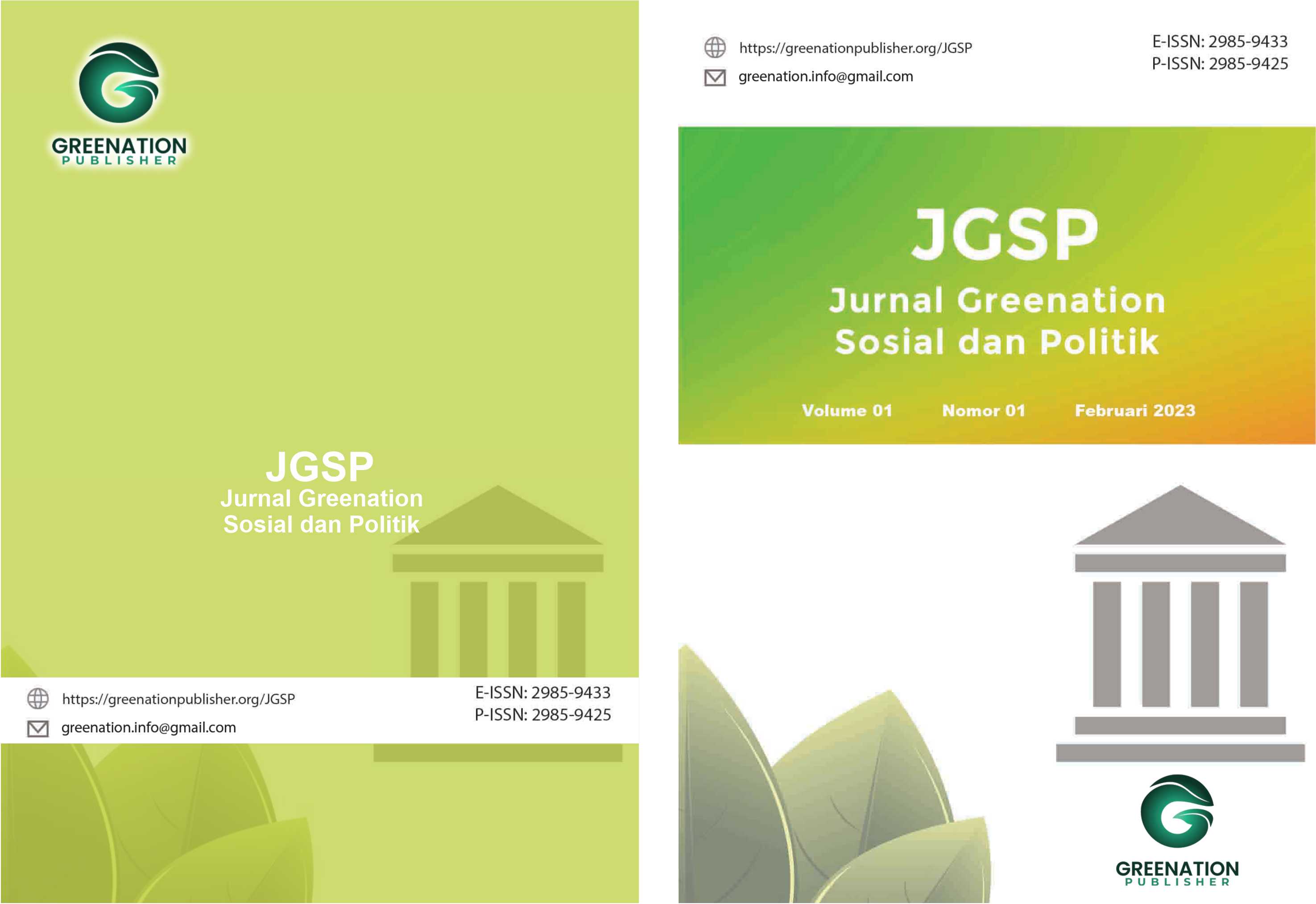Inclusion of Fingerprints in Notarial Deed Minutes as a Guarantee of Legal Protection for the Parties
DOI:
https://doi.org/10.38035/jgsp.v3i2.353Keywords:
Fingerprint, Notary, Legal ProtectionAbstract
The position of Notary is a profession that requires special skills and high responsibility in serving the legal needs of the community. However, in practice, there are often deviations by the parties appearing before the Notary, such as the party that should be listed in the deed is not the person who is present in person or denying the existence of a transaction made before the Notary. To protect the validity of the deed and the position of the Notary, one of the provisions regulated in Article 16 paragraph (1) letter c of Law Number 2 of 2014 concerning Amendments to Law Number 30 of 2004 concerning the Position of Notary is the obligation to include the fingerprints of the parties on the minutes or attachments to the deed. This study aims to examine and analyze the importance of these provisions in guaranteeing the authenticity of the identity of the parties, preventing legal defects in the deed, and ensuring its legal accountability. By using a normative legal approach based on statutory regulations, this study concludes that the regulation regarding fingerprints in the minutes of notarial deeds still gives rise to various interpretations, so strict supervision is needed from the Notary Supervisory Board to impose sanctions if there is negligence by the Notary in its implementation.
References
Abdillah, S. (2023). Batasan Kewenangan Dan Tanggung Jawab Notaris-PPAT Dalam Edukasi Prosedur Pembuatan Akta Otentik Ditinjau Dari Pasal 51 KUHP. Journal of Education Research, 4(1), 321.
Abdillah, S. a. (2022). Spesialitas Notaris-PPAT Sebagai Profesi dan Jabatan Dalam Sistem Hukum Indonesia. Jurnal Kajian Ilmu Hukum, 1(1), 11-24.
Afriana, A. (2020). Kedudukan Dan Tanggung Jawab Notaris Sebagai Pihak Dalam Penyelesaian Sengketa Perdata Di Indonesia Terkait Akta Yang Dibuatnya. Jurnal Poros Hukum Padjadjaran, 167-177.
Annisa, S. N. (2024). Analisis Tantangan dan Prospek Masa Depan Jabatan Notaris di Indonesia dalam Era Digitalisasi dan Perkembangan Ekonomi. Journal of International Multidisciplinary Research, 2(1), 205–212.
Baiti, I. N. (2023). Urgensi dan Penerapan Konsep Cyber Notary di Masa Pandemi Covid-19. Notarius, 16(1), 540–554.
Budianto, A. S. (2024). Perluasan dari Alat Bukti Tertulis dalam Perspektif Hukum Acara Perdata. Law, Development and Justice Review, 7(2), 124–140.
Diana, P. V. (2016). Pertanggung Jawaban Notaris Dalam Pembuatan Akta Berdasarkan Pemalsuan Surat Oleh Para Pihak. JurActa Comitas, 188–195.
Febrianty, Y. (2023). Keberadaan Hukum Kenotariatan Di Indonesia. Cirebon: Green Publisher,.
Haris, I. N. (2018). Pertanggungjawaban Notaris Berkenaan dengan Kebenaran Substansi Akta Otentik I. Rechtidee, 15(1), 165–175.
Hermin. (2024). Regulasi Penandatanganan Secara Elektronik Terhadap Akta Autentik. Ponorogo: Uwais Inspirasi Indonesia.
Hudaya, S. G. (2022). Sah Tidaknya Pembuatan Akta Notaris Secara Elektronik Berdasarkan Teori Hukum Positif Yang Berlaku. Al Qodiri : Jurnal Pendidikan, Sosial Dan Keagamaan, 19(3), 566–578.
Inzaghi, D. L. (2024). Analisis Kewenangan Notaris Pengganti Dalam Penerbitan Salinan & Minuta Akta Untuk Keterangan Hukum Di Pengadilan. Jurnal Hukum Bisnis, 8(2), 228.
Januar, I. P. (2024). Perubahan Kualitas Akta Notaris Menjadi Akta Dibawah Tangan Atau Menjadi Batal Demi Hukum Berdasarkan Undang-Undang Jabatan Notaris. Honeste Vivere, 34(1), 81–91.
Kurniawan, I. W. (2018). Tanggung Jawab Notaris Atas Akta yang Tidak Dibacakan Dihadapan Para Penghadap I. Acta Comitas Jurnal Hukum Kenoktariatan, 3(3), 489–499.
Ma’ruf, U. a. (2015). Tinjauan Hukum Kedudukan Dan Fungsi Notaris Sebagai Pejabat Umum Dalam Membuat Akta Otentik. Jurnal Pembaharuan Hukum, 433.
Manibuy, C. (2023). Analisa Hukum Klausul Eksonerasi (Pembebasan Tanggung Jawab) dalam Akta Notaris. Al Qodiri : Jurnal Pendidikan, Sosial Dan Keagamaan, 21(1), 249–259.
Moechtar, O. (2024). Hukum Kenotariatan: Teknik Pembuatan Akta Notaris Dan PPAT. Jakarta: Kencana.
Nofrianti, S. (2024). Tanggung Jawab Notaris Atas Pembuatan Akta Yang Tidak Sesuai Prosedur Berdasar Undang-Undang Jabatan Notaris. Yogyakarta: Universitas Islam Indonesia.
Nurjanah, A. (2023). Subtansi Prinsip Profesionalisme Dalam Peran Notaris Sebagai Pejabat Umum Terhadap Pembuatan Akta Autentik. Cakrawala, 1028–1036.
Prabawa, I. G. (2020). Peran Notaris Dalam Pendirian Koperasi Setelah Diberlakukannya Online Single Submission. Acta Comitas, 5(2), 411.
Pratiwi, M. K. (2023). Pertanggungjawaban Notaris Dalam Penyerahan Dokumen Kepada Orang Yang Tidak Berwenang. Jurnal Ilmu Sosial Dan Pendidikan, 7(3), 1966–1976.
Prianto, A. A. (2024). Kepastian Hukum Kekuatan Akta Otentik Terhadap Para Penghadap Yang Mengandung Klausula Eksonerasi Dikaitkan Dengan Tanggung Jawab Notaris. SENTRI: Jurnal Riset Ilmiah, 3(3), 133.
Salsa, S. N. (2020). Hukum Pengawasan Notaris Di Indonesia Dan Belanda. Jakarta: Kencana.
Sari, D. A. (2018). Kewenangan Notaris Di Bidang Cyber Notary Berdasarkan Pasal 15 Ayat (3) Undang-Undang Nomor 2 Tahun 2014 Tentang Perubahan Atas Undang-Undang Nomor 30 Tahun 2004 Tentang Jabatan Notaris. Jurnal Ilmiah Prodi Magister Kenotariatan, 2(2), 219-227.
Sudjarot, A. (2022). Peran Dan Kewenangan Notaris Terhadap Pendaftaran Izin Usaha Melalui Sistem Online Single Submission. Fiat Iustitia : Jurnal Hukum, 3(1), 93-113.
Wijaya, P. A. (2018). Tanggung Jawab Notaris Terhadap Kesalahan Dalam Pembuatan Akta Yang Dilakukan Oleh Notaris Penggantinya. Perspektif, 23(2), 113.
Downloads
Published
How to Cite
Issue
Section
License
Copyright (c) 2025 Erry Ariany, Faisal Santiago

This work is licensed under a Creative Commons Attribution 4.0 International License.
Hak cipta :
Penulis yang mempublikasikan manuskripnya di jurnal ini menyetujui ketentuan berikut:
- Hak cipta pada setiap artikel adalah milik penulis.
- Penulis mengakui bahwa Jurnal Greenation Sosial dan Politik (JGSP) berhak menjadi yang pertama menerbitkan dengan lisensi Creative Commons Attribution 4.0 International (Attribution 4.0 International CC BY 4.0) .
- Penulis dapat mengirimkan artikel secara terpisah, mengatur distribusi non-eksklusif manuskrip yang telah diterbitkan dalam jurnal ini ke versi lain (misalnya, dikirim ke repositori institusi penulis, publikasi ke dalam buku, dll.), dengan mengakui bahwa manuskrip telah diterbitkan pertama kali di JGSP.
























